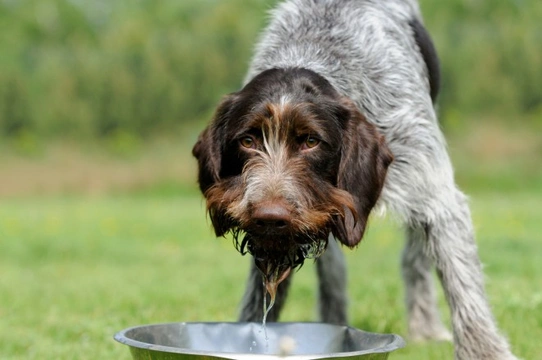
The role that water plays in canine nutrition
We all know that drinking enough water is vital for good health, both when it comes to ourselves and also when it comes to our dogs! Dogs should have free access to clean, fresh water at all times, and particularly, should have water available to them when they have their meals.
Water is not only vital for hydration, but also helps your dog to get the most out of their food and benefit from all of the nutrients in it, and a dehydrated dog or one that does not get enough water will not thrive, nor fully benefit from their meals.
In order to ensure that your dog stays hydrated and is able to get the full benefit out of their food, it is wise to find out the basics of the role that water plays in good canine nutrition. Read on to learn more!
How does hydration aid in feeding?
Simple fresh water fulfils a whole range of roles for your dog, such as carrying vital nutrients around the body, into the cells, and flushing our toxins. Water aids with digestion and helps the body to absorb nutrients in the stomach and intestine, and also helps to regulate body temperature and keep your dog cool enough.
Water also provides cushioning and lubrication to the joints, and vital body parts such as the spinal cord and muscles are cushioned by fluid to protect them. Water helps to remove waste products and excess nutrients and minerals through the bladder and bowels too.
Staying hydrated also helps your dog to pass bowel movements comfortably, as dehydration can lead to constipation and make your dog strain and struggle to do their business.
Toxins and even excess nutrients in food can build up within the body and cause problems if a low water intake means that they are not passed out through the body naturally.
Water supports every function of the body, including the diet!
Getting water into your dog
Dogs tend to drink freely when it suits them, and a dog with free access to clean water is unlikely to get dehydrated.
However, many dog owners fall into bad habits, such as not cleaning the water bowl daily, only topping up the dish when it is empty, and not taking care that the water remains clean and fresh at all times.
Water intake does not only come from your dog’s water bowl itself; dogs also gain moisture from the food that they eat, and what they eat will dictate in many ways how much actual water they will want to drink as well.
Hard kibble is just 20% or so moisture, while canned food can be up to 80%, so the dryer your dog’s diet, the more water they will need. Feeding wet or moist food can help to up your dog’s water intake naturally.
Dogs that eat only hard food exclusively will generally drink more, but often, not enough to make up for the extreme dryness of their food. You can counteract this by either feeding more wet food, mixing wet and dry food, or soaking dry food in water or a plain stock before offering it to your dog.
While hard food is a good choice to ensure that your dog has healthy, clean teeth, such a diet is not suitable for all dogs, particularly those that are prone to losing a lot of water or that have kidney problems such as crystals and stones.
Is your dog dehydrated?
Healthy dogs with free access to water that are generally healthy should not be dehydrated, although during the summer when the weather is hot, or if they have exercised hard, they may need to drink more to top up their hydration levels.
Certain health conditions can lead to dehydration in the dog too, including diabetes, digestive problems, and some cancers, and so if your dog seems to be dehydrated for no obvious reason, or drinks a lot of water, it is worth looking into finding out if something is amiss.
There are various different ways to check your dog’s hydration levels, such as by looking at their gums. These should be moist and red, so if they are pale and tacky, your dog is likely dehydrated. Severe dehydration also leads to sunken eyes, and a dry nose and eyes too.
Another way to test your dog’s hydration levels is to lightly pinch a loose area of skin and then release it. In a well hydrated dog, the skin should spring right back; if it takes a few seconds, your dog is almost certainly dehydrated.
If you do spot any signs of problems related to hydration, you should speak to your vet as soon as possible, as there may be an underlying problem that will need to be addressed.



